Table of Contents
ToggleThe 7th Amendment to the United States Constitution contains 50 words and 272 characters. It is composed of 1 sentence.
Full Text of the 7th Amendment to the US Constitution
In Suits at common law, where the value in controversy shall exceed twenty dollars, the right of trial by jury shall be preserved, and no fact tried by a jury, shall be otherwise re-examined in any Court of the United States, than according to the rules of the common law.
Like the rest of the Bill of Rights, the 7th Amendment is all about protecting the rights of the individual.
What is the 7th Amendment?
The 7th Amendment is about the right to a trial by jury in a case between two parties. It was ratified on December 15, 1791.
The Seventh Amendment relates to the right to a trial by jury.
The relation between the 7th Amendment and the 6th Amendment
The 7th Amendment to the United States Constitution supports and enhances the provisions of the 6th Amendment.
In the 6th Amendment, the right of an accused person to a jury trial is guaranteed. In the 7th Amendment, this right is fine-tuned to establish clarity in civil court cases, which protects the citizens’ rights.

7th Amendment rights are incredibly important. So much so that the Seventh Amendment was ratified as part of the Bill of Rights.
What Is Common Law?
Common law, mentioned on two occasions in the 7th constitutional amendment, is the basis of the legal systems in England and the United States. Common law comprises customary laws that have been in existence since the Middle Ages.
English common law came to America due to British colonization and continues as the bedrock of its legal system today.
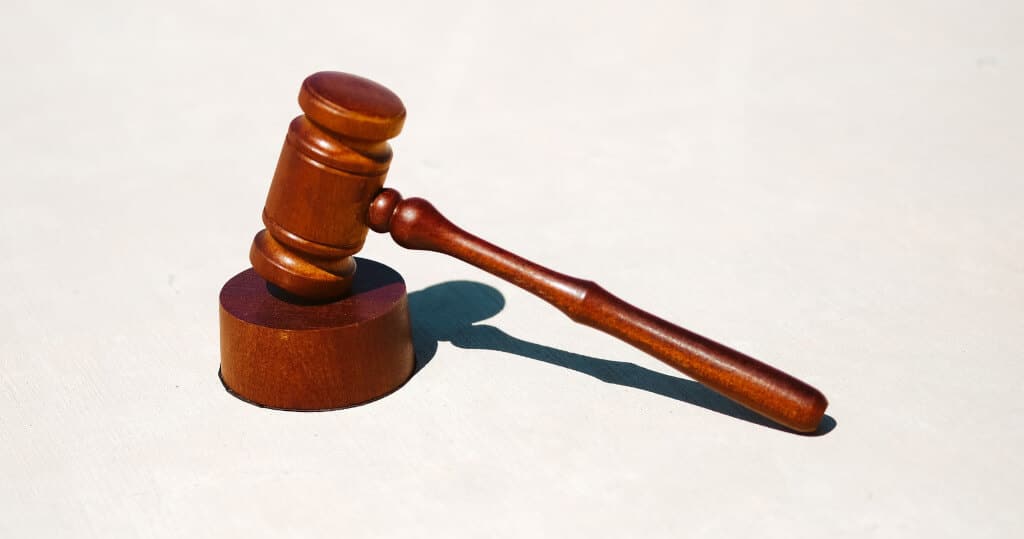
Thus, the Founding Fathers felt secure in referring to ‘common law’ as their compatriots would understand exactly what they meant.
The Term ‘Civil Cases’ Explained
A civil case is one in which disputes involving companies, organizations, or private citizens are heard.
A typical 7th Amendment civil case might concern an individual suing a company for damages if a faulty product damages his property.

Those bringing the civil court case can choose to have a jury trial or opt for a judge to rule alone.
When the 7th Amendment was formulated in the late eighteenth century, twenty dollars was a considerable amount of money.
Today, a federal court hearing a civil case will only offer the option of a jury if the claimed damages exceed $75,000.
Trial by Jury in Civil Cases Guaranteed
The Founding Fathers were concerned that if trial by jury in civil cases disappeared, then decisions would have to be made solely by a judge.
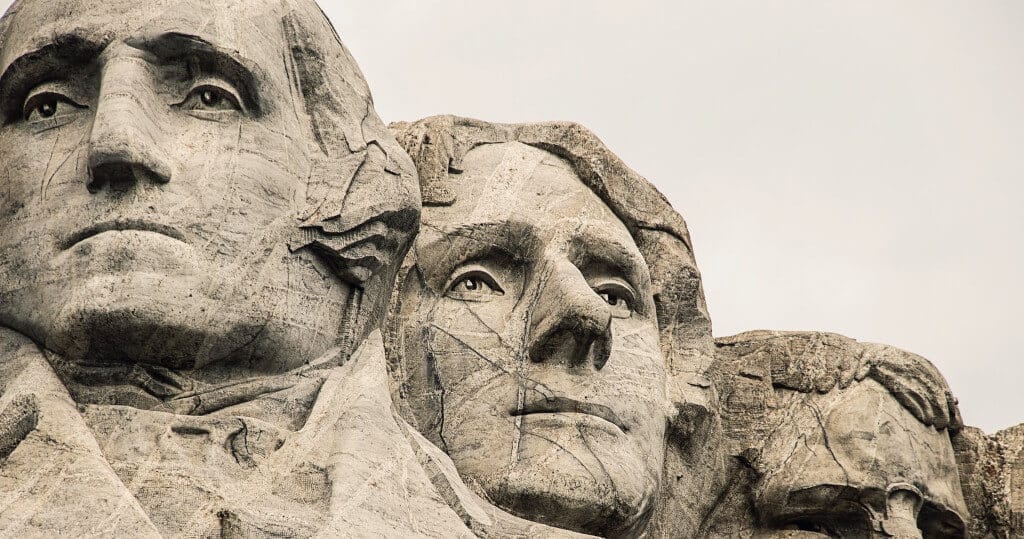
They felt there was a risk that a judge might be biased or corrupted. This would be lessened if there were a trial by jury.

Get Smarter on US News, History, and the Constitution
Join the thousands of fellow patriots who rely on our 5-minute newsletter to stay informed on the key events and trends that shaped our nation's past and continue to shape its present.
In some cases, people felt that a judge might be more inclined to side with the government, which could lead to the government having too much power.
Royal Bias Amongst Judges
When the US Constitution was being written, the abuses of the law by British judges in the thirteen colonies were remembered well.
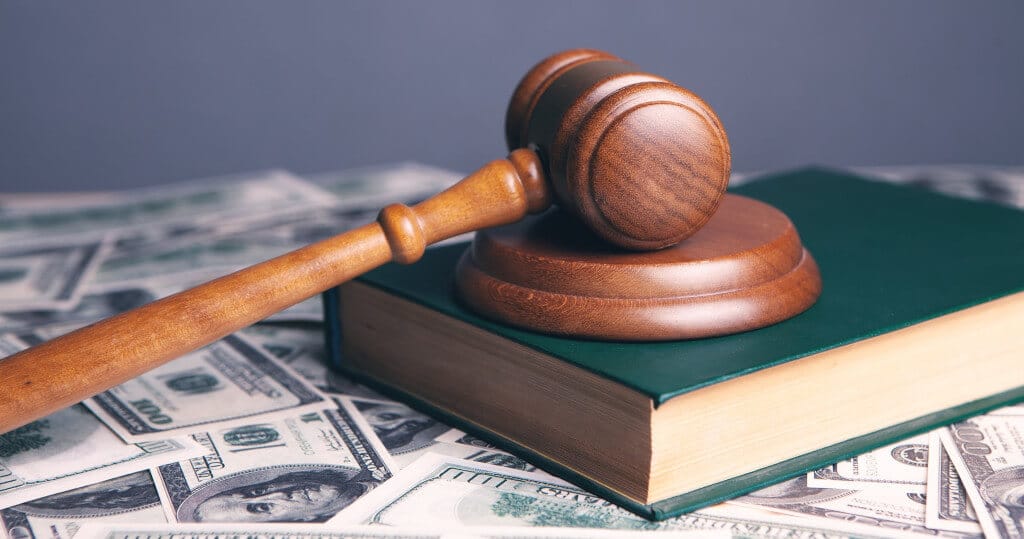
Generally, the King appointed judges, who invariably ruled in the King’s favor when hearing civil cases. There was, therefore, an important principle to be preserved.
The 7th Amendment’s purpose was to establish rules to govern civil trials. The 6th Amendment had made clear the rules regulating criminal trials.
It was, however, necessary to make clear the role of a jury in a civil trial. Juries could establish matters of fact, and no other court could alter that decision once established. Thus, interpretation of the law was the role of the courts.

Trial by Jury Amendment
Trial by jury is an important principle, and the Founding Fathers guaranteed in the 7th Amendment (or Trial by Jury Amendment) that it would apply equally in a civil court case.
Explore the 27 Constitutional Amendments
- 1st Amendment
- 2nd Amendment
- 3rd Amendment
- 4th Amendment
- 5th Amendment
- 6th Amendment
- 7th Amendment
- 8th Amendment
- 9th Amendment
- 10th Amendment
- 11th Amendment
- 12th Amendment
- 13th Amendment
- 14th Amendment
- 15th Amendment
- 16th Amendment
- 17th Amendment
- 18th Amendment
- 19th Amendment
- 20th Amendment
- 21st Amendment
- 22nd Amendment
- 23rd Amendment
- 24th Amendment
- 25th Amendment
- 26th Amendment
- 27th Amendment
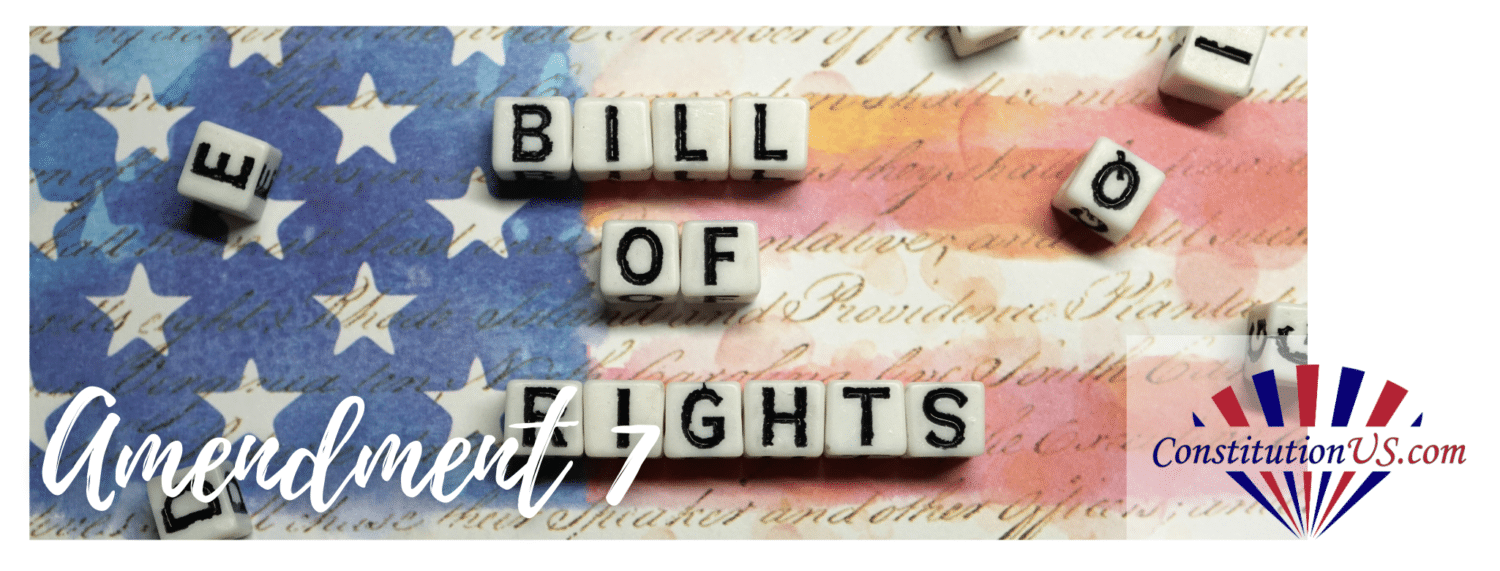
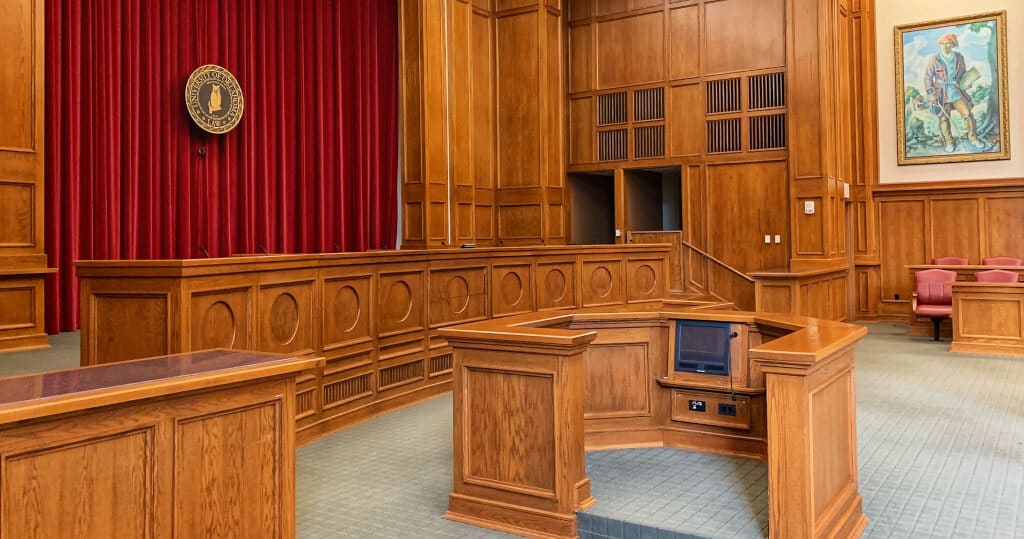
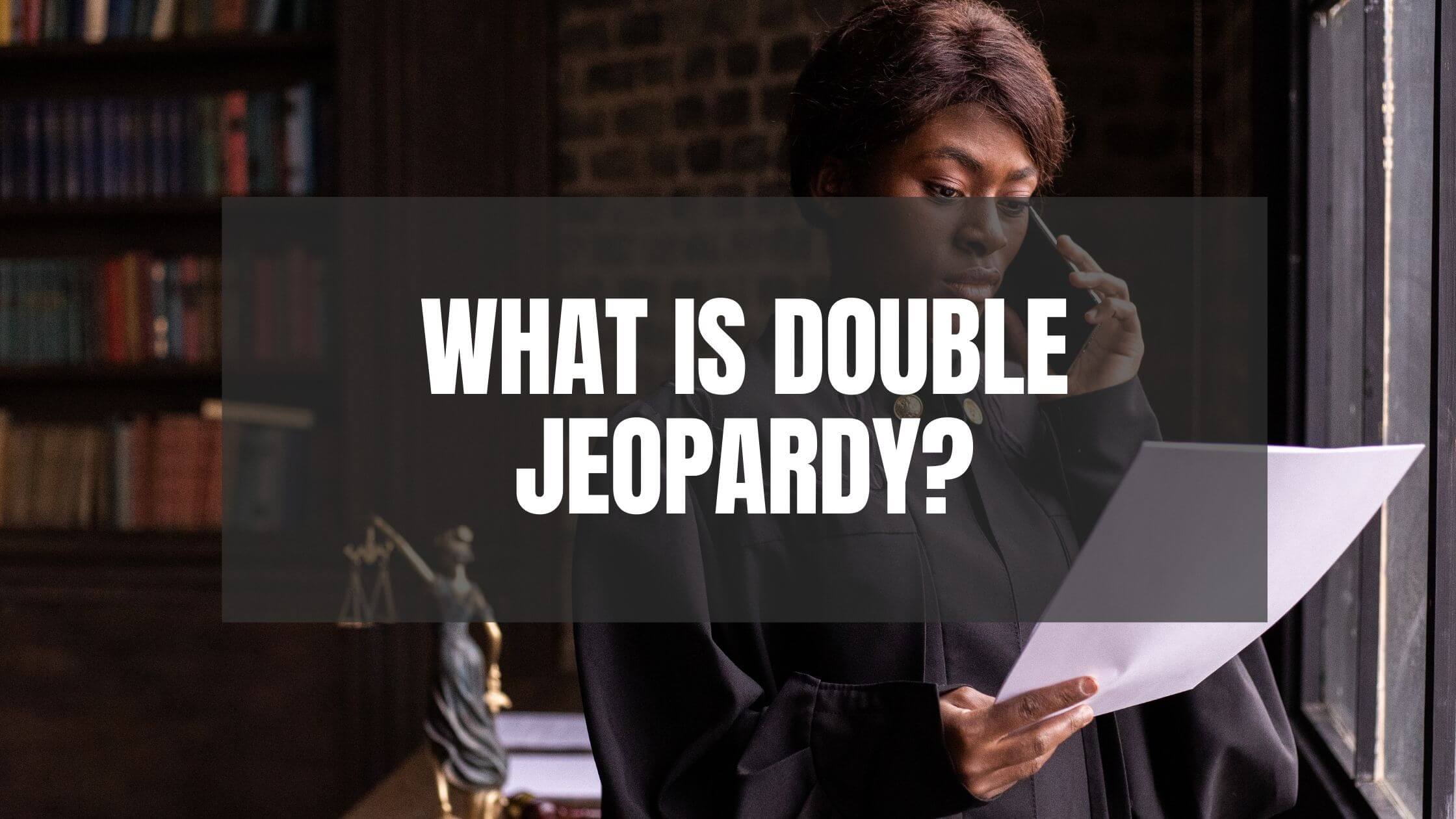
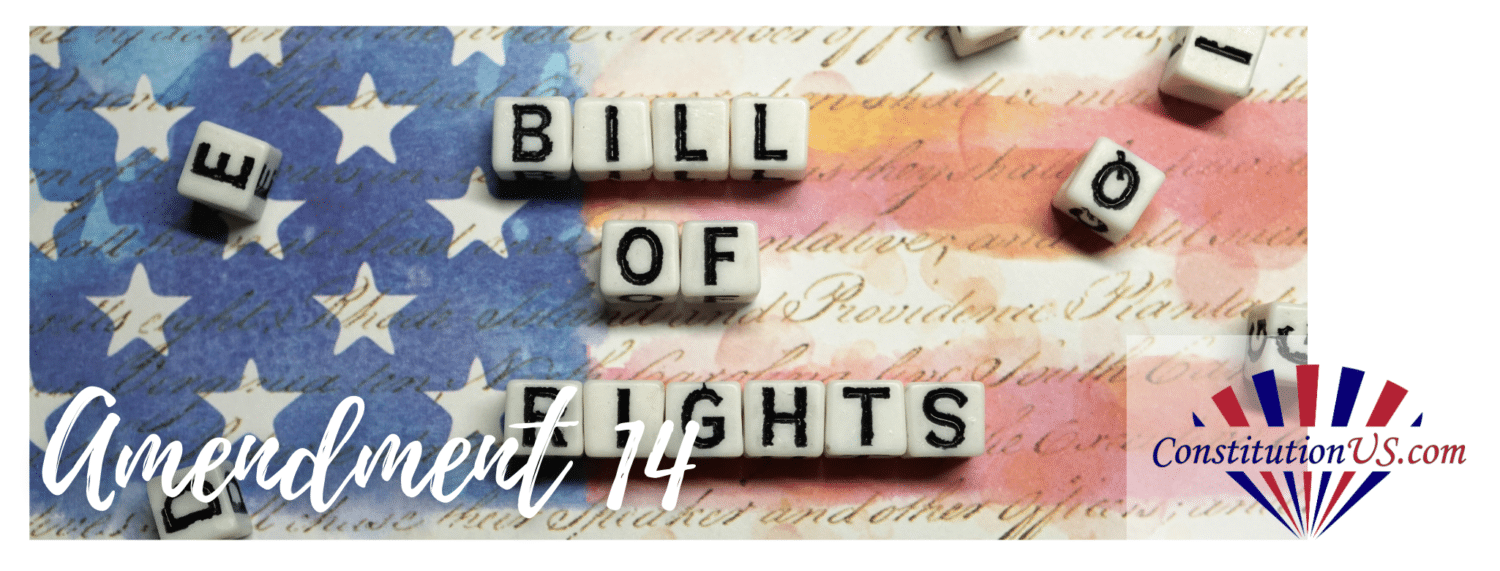








One Response
Interesting that with the average inflation rate since 1871 of approx 2% that same $20 would only be worth $428 in today’s dollars. It would seem that our 7th amendment rights have been eroded by $74572 in real dollars.